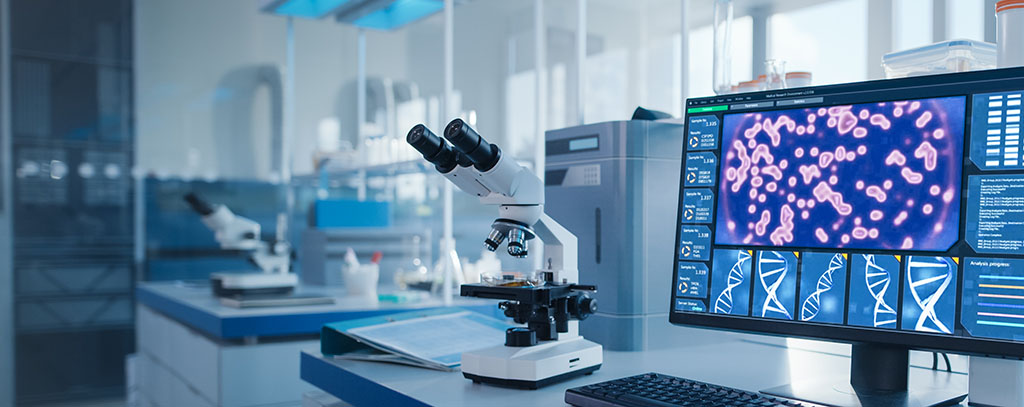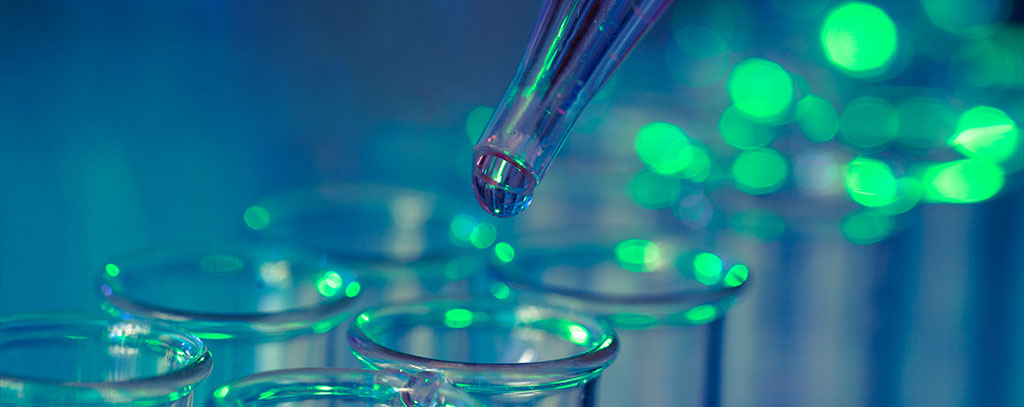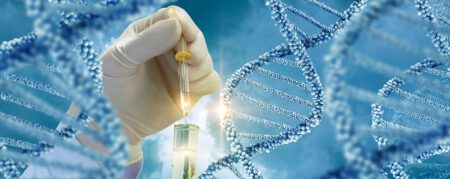


How Accurate is a 10 Panel Drug Test: Comprehensive Guide
April 17, 2023


What Does a 10 Panel Drug Test Test For? Comprehensive Guide
April 18, 2023When it comes to detecting alcohol consumption, one of the most reliable methods is through ETG testing. But what does ETG test for exactly? In this comprehensive blog post, we will delve into the specifics of ethyl glucuronide (ETG) tests and their applications in various industries.
We will begin by discussing what an ETG test is and how it works to detect alcohol metabolites in urine samples. Then, we'll explore the accuracy of these tests and factors that may affect their reliability. As a company looking to purchase drug testing supplies, you'll also find valuable information on different types of collection kits available for conducting ETG tests.
Furthermore, cost considerations are crucial when investing in drug testing supplies; hence we'll provide insights into costs associated with urine, saliva, and hair collection kits for ETG tests. Lastly, our guide will help you identify where to buy these essential drug testing supplies from reputable sources such as online retailers or local pharmacies.
By understanding what does ETG test for and its implications on your business operations or employee safety programs, you can make informed decisions about implementing effective alcohol screening measures within your organization.
Table of contents
- What is an ETG Test?
- What Does it Test For?
- How is it Administered?
- What are the Benefits of an ETG-Test?
- How Accurate is an ETG Test?
- Types of Drug Testing Supplies for ETG Tests
- Cost Considerations for Drug Testing Supplies for ETG Tests
- Where to Buy Drug Testing Supplies for ETG Tests
- Frequently Asked Questions What Does Etg Test for
- Conclusion
What is an ETG Test?
An ETG test is a type of drug screening that detects the presence of alcohol metabolites in a person's system, making it useful for companies looking to enforce their substance abuse policies. It can provide valuable information about an individual's recent alcohol consumption, making it a popular choice for companies looking to enforce their substance abuse policies. In this section, we will discuss what the ETG test specifically tests for, how it is administered, and its benefits.
What Does it Test For?
The ETG test primarily screens for ethyl glucuronide (EtG), which is a direct biomarker produced when ethanol - the main component of alcoholic beverages - gets metabolized by the liver. This makes EtG testing highly sensitive to detecting even small amounts of alcohol consumption within hours or days after ingestion.
How is it Administered?
There are several methods available for administering an alcohol test:
- Urine: The most common method involves collecting urine samples from individuals and then analyzing them using immunoassay techniques or mass spectrometry.
- Hair: Hair samples can also be tested for EtG levels; however, this method may not detect low-level exposure as effectively as urine testing.
- Breathalyzer:A breathalyzer device measures breath alcohol concentration (BrAC) rather than EtG but still provides useful information on recent drinking behavior.
What are the Benefits of an ETG-Test?
An ET-Gtest offers numerous advantages over traditional blood-alcohol tests, including:
- Extended detection window: ETG tests can detect alcohol consumption up to 80 hours after ingestion, while blood-alcohol levels typically return to normal within a few hours.
- Non-invasive sampling methods: Urine and hair samples are less invasive than blood draws, making them more comfortable for the person being tested.
- Detection of low-level exposure: The sensitivity of ETG testing allows it to pick up on even small amounts of alcohol consumption that might not be detected by other methods.
In summary, an ET-Gtest is a valuable tool for companies looking to enforce their substance abuse policies. By understanding what this test screens for and how it is administered, you can make informed decisions about incorporating ET-Gtesting into your workplace drug screening program.
The ETG test is a dependable and precise technique for recognizing alcohol consumption, yet there are certain components that may influence its exactness. Consequently, it is essential to be aware of the constraints of this type of drug testing in order to obtain the most precise results.
How Accurate is an ETG Test?
An ETG test, or Ethyl Glucuronide test, is a popular method for detecting alcohol consumption due to its high sensitivity and ability to detect alcohol use even after the effects have worn off. It's essential to be aware of the potential for inaccuracies due to factors such as dilution, and the limitations of this test, in order to make informed decisions when using it.
Factors that Affect Accuracy
- Dilution: The concentration of EtG in urine samples can be affected by dilution if an individual drinks excessive amounts of water before taking the test. This may lead to false-negative results.
- Ingestion of Non-Alcoholic Products: Some non-alcoholic products like mouthwash or hand sanitizer contain small amounts of ethanol which might cause a positive result on an EtG test. It's important to consider these potential sources when interpreting results (source).
- Time Since Alcohol Consumption: While EtG tests are sensitive enough to detect alcohol use up to 80 hours after ingestion, detection time varies depending on factors such as metabolism rate and amount consumed.
Limitations of the Test
The main limitation associated with ETG tests lies in their inability to determine how much alcohol was consumed or precisely when it was ingested. Furthermore, they cannot differentiate between chronic heavy drinkers and occasional users who happened to consume alcohol within the detection window (source). This makes it challenging to use ETG tests as the sole method for determining alcohol abuse or dependency.
Reliability of Results
Despite these limitations, EtG tests are still considered a reliable and accurate method for detecting recent alcohol consumption. The key is to interpret results in conjunction with other information such as self-reporting, behavioral observations, and additional testing methods like breathalyzers or blood tests. Integrating multiple data sources can strengthen the dependability of a company's drug testing program, thus enabling more knowledgeable decisions to be made regarding personnel well-being and security.
Overall, the accuracy of an ETG test can vary depending on a number of factors. Despite its varying accuracy, an ETG test is still deemed one of the most dependable methods for determining recent alcohol consumption. Moving on from this topic, let us explore what types of drug testing supplies are available for use with an ETG test.
Types of Drug Testing Supplies for ETG Tests
When it comes to administering an ETG test, there are various drug testing supplies available on the market. Kits for collecting samples of saliva, hair and breath can be sorted into various categories, each with its own pros and cons depending on the particular requirements of an organization. Each type has its own advantages and disadvantages depending on the specific needs of your company.
Urine Collection Kits
Urine collection kits are one of the most common methods used for ETG tests due to their ease of use and affordability. The process involves collecting a sample from the individual being tested in a sterile container which is then sealed and sent to a laboratory for analysis. Urine tests have been proven effective in detecting recent alcohol consumption within 24-72 hours after ingestion.
Saliva Collection Kits
Saliva collection kits, also known as oral fluid tests, provide another non-invasive option for conducting an alcohol test. The individual being tested provides a saliva sample by swabbing their mouth with a specialized device that collects oral fluids. This method offers quick results but may not detect alcohol consumption beyond 48 hours prior to testing.
Hair Collection Kits
If you're looking for long-term detection capabilities,hair collection kits are an excellent choice as they can identify alcohol consumption up to 90 days prior to testing. Hair samples from the subject's head or body can be collected and sent to a laboratory for analysis, providing an extended detection window compared to breathalyzers. While this method provides an extended detection window, it may not be suitable for detecting recent alcohol consumption within the past few days.
Breathalyzers
For immediate results, breathalyzers are an effective tool in determining blood alcohol concentration (BAC) levels on-site. These devices require the individual being tested to blow into a mouthpiece which then measures their BAC level. Breathalyzers can detect alcohol consumption within hours of ingestion but have a limited detection window and cannot provide historical data like urine or hair tests.
Selecting the appropriate drug testing supplies for ETG tests depends on your company's specific needs and requirements. Consider factors such as detection windows, accuracy, cost-effectiveness, and ease of use when making your decision.
When considering drug testing supplies for ETG tests, it is important to understand the different types of collection kits available and their associated costs. Next, we will explore the cost considerations when purchasing these items.
Cost Considerations for Drug Testing Supplies for ETG Tests
When it comes to implementing ETG tests in your company, understanding the costs associated with various drug testing supplies is crucial. This section will discuss the expenses related to urine, saliva, and hair collection kits.
Costs Associated with Urine Collection Kits
Urine collection kits are often considered the most affordable option for conducting ETG tests. These kits typically include a specimen cup, temperature strip, and test strips or cassettes that detect alcohol metabolites in urine samples. Prices can range from $5 to $15 per kit depending on factors such as quantity purchased and brand quality.
- Affordable option for large-scale testing
- Ease of use and rapid results
- Potential discounts when purchasing in bulk quantities
Costs Associated with Saliva Collection Kits
Saliva collection kits, while slightly more expensive than urine-based options, offer non-invasive sample collection methods suitable for workplace settings where privacy concerns may arise. The cost of these kits ranges between $10 and $25 per test based on factors like manufacturer reputation and order volume.
Ideal choice when considering employee comfort during sample collection process.
No need for specialized facilities or equipment required by other types of tests (e.g., urinalysis)
Limited risk of tampering due to direct observation during sample collection
Costs Associated with Hair Collection Kits
Hair collection kits, while offering a longer detection window, are the most expensive option for ETG testing. These tests require specialized laboratory analysis and can cost anywhere from $50 to $150 per test depending on factors such as lab fees, turnaround time, and the specific panel of substances being tested.
- Detection window up to 90 days offers a more comprehensive view of substance use history.
- Reduced risk of tampering due to hair samples being difficult to adulterate or substitute.
- Higher costs may be offset by increased accuracy and reduced need for frequent retesting.
In conclusion, understanding the costs associated with various drug testing supplies is crucial when implementing ETG tests in your company. It's essential to consider factors like employee comfort, detection windows, and overall budget constraints when selecting the appropriate type of test kit for your organization.
It is important to consider the cost of drug testing supplies for ETG tests before making a purchase. Next, let's look into where to acquire these items.
Where to Buy Drug Testing Supplies for ETG Tests
Finding reliable and high-quality drug testing supplies for ETG tests is essential for companies that want to ensure a safe and drug-free workplace. For those looking to buy drug testing supplies for ETG tests, there are numerous sources available, such as online retailers, pharmacies in the area and medical supply shops.
Online Retailer
Halux Diagnostic is your trusted source for high quality drug and alcohol testing supplies.
Local Pharmacies
In addition to prescription medications and over-the-counter remedies, many local pharmacies also carry a selection of drug testing supplies suitable for ETG tests. This option allows you to speak with knowledgeable pharmacists who can provide guidance on selecting the right test kit based on your specific needs. Popular pharmacy chains such as Walgreens and CVS Pharmacy may somtimes ETG test kits, providing customers with an easily accessible option for purchasing testing supplies.
Medical Supply Stores
If you're looking for professional-grade equipment or bulk quantities of test kits at competitive prices, consider visiting a medical supply store near you or browsing their online catalogs. Halux Diagnostic specialize in providing a wide range of drug testing supplies, including ETG test kits for urine, saliva, hair samples, and breathalyzers.
When purchasing drug testing supplies for ETG tests, it's essential to choose products that meet industry standards and provide accurate results. By exploring the various options available through online retailers, local pharmacies, and medical supply stores, you can find the right solution to maintain a safe working environment within your organization.
Frequently Asked Questions What Does Etg Test for
What does an EtG urine test for?
An EtG (ethyl glucuronide) urine test is designed to detect the presence of ethyl glucuronide, a metabolite of alcohol. This test is commonly used to determine if someone has recently consumed alcohol, as it can detect consumption up to 80 hours after ingestion. It's often utilized in situations where abstinence from alcohol is required, such as probation or substance abuse treatment programs.
How much do you have to drink to fail an EtG test?
The amount of alcohol needed to fail an EtG test varies depending on factors like individual metabolism and testing sensitivity. However, consuming even small amounts of alcohol could potentially result in a positive result. Generally speaking, drinking more than one standard alcoholic beverage within 24-48 hours before the test may lead to a positive result.
Can Nyquil test positive for EtG?
Yes, some formulations of Nyquil contain small amounts of alcohol which could potentially cause a false-positive result on an EtG test. To avoid this issue, opt for non-alcoholic alternatives when taking over-the-counter medications prior to undergoing drug testing.
What is the longest EtG can be detected in urine?
EtG can typically be detected in urine for up to 80 hours after consuming alcohol; however, detection times may vary based on factors such as individual metabolism rates and hydration levels. In rare cases with heavy drinkers or those with slow metabolic rates, traces might be found beyond that timeframe.
Conclusion
In conclusion, it is important to understand what an ETG test does and how accurate the results are when choosing drug testing supplies for your organization. The price of these items may differ depending on the kind of tests desired and from where they are bought. When considering which drug testing supplies to buy for an ETG test, be sure that they meet all necessary requirements so that the results will be reliable and accurate. Does etg test for alcohol consumption? Yes - this type of test is highly sensitive in detecting even trace amounts of alcohol consumed up to 80 hours prior to taking a sample.
Discover the reliable and accurate ETG testing solutions Halux Diagnostic offers to help you detect drug use quickly and accurately. Contact us today for more information on our products and services.





